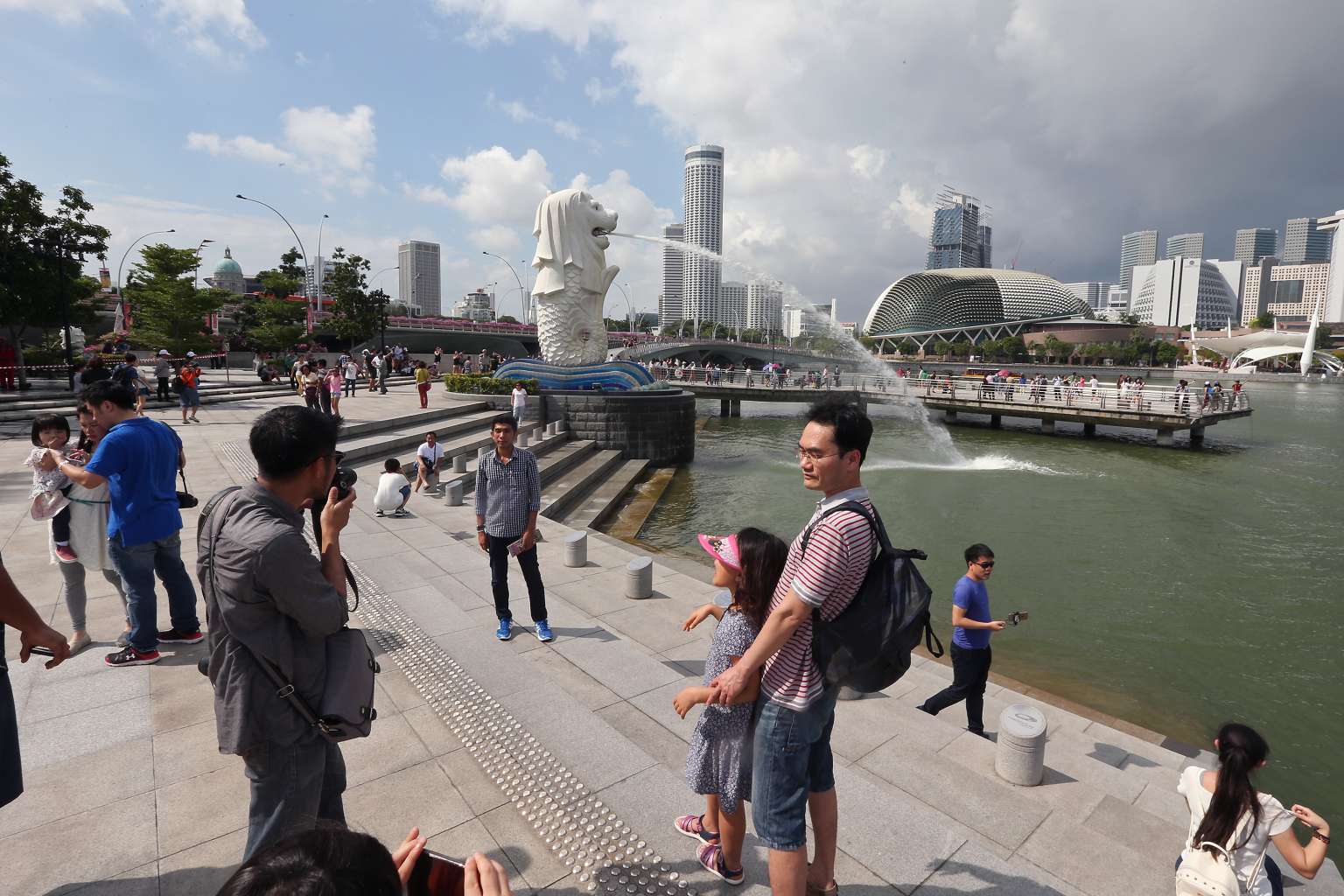Singapore still world's most expensive city for expatriates: EIU
Sign up now: Get ST's newsletters delivered to your inbox

Members of the public taking photographs at the Merlion Park on Feb 18, 2016.
ST PHOTO: NEO XIAOBIN
Follow topic:
SINGAPORE - For the third year in a row, Singapore has retained the title of the world's most expensive city for expatriates, despite experiencing its longest spell of declining consumer prices since the 1970s.
The Economist Intelligence Unit (EIU) in its 2016 worldwide cost of living survey released on Thursday (March 10) ranked Singapore as the costliest ahead of Zurich, Hong Kong, Geneva and Paris.
London was sixth and New York seventh on the list that compares the cost of a basket of more than 160 items - from food, toiletries and clothing to domestic help, transport and utility bills - across 133 cities.
The cheapest cities to live in were Lusaka, the capital of Zambia, followed by Bangalore and Mumbai in India, the EIU said.
The survey is designed to help human resource and finance managers calculate cost-of-living allowances and come up with compensation packages for expatriates and business travellers.
Singapore was still the priciest city even though its cost of living when compared to costs in New York - used as the study's base city - has come down by 10 per cent from a year ago, the EIU said.

It also noted that costs across the world have been highly volatile because of the rising US dollar, currency devaluations and movements, and falling oil and commodity prices.
This has caused big shifts in its ranking of cities.
Thus, Singapore's lead over the next two cities has nearly evaporated. Hong Kong, because of its currency's peg to the strong US dollar, shot up seven places to joint second place with Zurich in just 12 months.
And the unpegging of the Swiss franc from the euro helped Zurich and Geneva (4th place) retain the unenviable title of Europe's most expensive cities as they escaped Eurozone austerity and the economic fallout from falling oil prices, said the EIU.
In contrast, a weaker Aussie dollar pushed Sydney and Melbourne out of the top 10, down to 20th and 21st place respectively.
New York and Los Angeles also shot up the ranking because of currency headwinds, not price increases. With the falling cost of oil and a strong US dollar pushing down prices, inflation has been relatively low across the US.
Despite this, New York went from 22nd to 7th place - its highest global position since 2002 - and has risen by some 42 places up the ranking since 2011, when it was barely among the 50 most expensive cities, let alone the top ten. Similarly, Los Angeles catapulted 19 places in one year to joint 8th place.
"In nearly 17 years of working on this survey I can't recall a year as volatile as 2015," said Jon Copestake, EIU survey editor.
"Falling commodity prices have created deflationary pressures in some countries, but in others currency weakness caused by these falls has led to spiralling inflation," he added.
The EIU said that despite topping the ranking, Singapore still offers relative value in some categories, especially compared with its regional peers.
For general basic groceries, Singapore offers the same value as New York. This compares with Seoul, which is 33 per cent more expensive, Tokyo (26 per cent) and Hong Kong (28 per cent).
However, Singapore remains consistently expensive in other categories. It is the most expensive place in the world to buy and run a car, thanks to our Certificate of Entitlement system. Transport costs in Singapore are 2.7 times higher than in New York. Alongside Seoul, Singapore is also a very expensive city in which to buy clothes and pay for utility costs, said the EIU.

